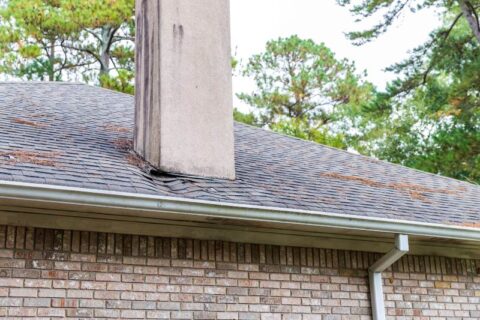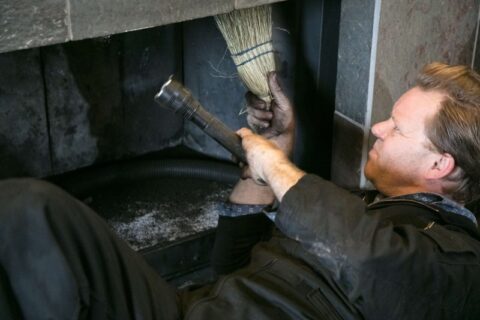Preventable Chimney Dangers
A roaring fire on a cold winter night is hard to beat. But, chimneys can be dangerous if you don’t take them seriously. In this article, we will discuss preventable chimney dangers and the steps you should take to avoid them.
A Dirty Chimney Is A Dangerous Chimney
Fireplace safety starts with a chimney sweeping. A dirty chimney can affect your home’s air quality. If you or someone in your family struggles with asthma or allergies, the creosote buildup can exacerbate the condition.
When our team comes to your house to sweep the chimney, we also perform an inspection. This chimney inspection is one of the most important things a homeowner can do to keep their home safe. During the inspection, we can identify potential dangers that linger in your chimney. Chimney fires can spread through a home in minutes and a chimney inspection is your first line of defense when it comes to a chimney fire.
Make sure to have your chimney swept and inspected regularly by a professional.
Leaving Ashes In Your Fireplace
We know it’s no fun to sweep the ashes out every couple of days after you enjoy your fire. But it is important that you not let ashes build up in your fireplace. Ashes can be combustible and cause house fires.
It’s also important that you dispose of these ashes properly. We suggest using a metal can to dispose of the ashes and then removing that can from your home.
Storing Flammable Liquids Too Close To Fireplace
Although it may go without saying, it is important to be careful when using flammable liquids to start your fire. Gasoline, kerosene, and lighter fluid are all very dangerous near an open flame and should not be used to start a fire in your home. Consider using a firestarter log instead. It may take longer but it is far safer.
Leaving Fire Unattended
It’s the end of the night and the fire is not out yet and one might think surely, it will be okay. This is a misconception many homeowners have. It is important to never leave your fire unattended. Make sure to extinguish your fire completely before going to bed or leaving the house.
If at the end of the night your fire is still burning, there are three steps to safely extinguish it.
- Spread out the embers so they don’t fuel each other
- Use cooler ashes to smother the embers
- Use baking soda to be sure the fire is completely extinguished
Having An Open Fire
We don’t see this as often anymore but it does still happen. People love to watch the fire burn. In truth, it is mesmerizing. But it is important to always use a sturdy screen in front of the fireplace.
A sturdy screen in front of your fireplace is designed to prevent sparks from escaping and to help keep your home safe.
Having Furniture & Other Flammable Materials Too Close To Fire
Even with a screen, it is important to keep flammable materials away from your fireplace. This includes curtains, furniture, carpets, and flammable knick-knacks.
Although most adults understand this danger, many kids, including teenagers don’t. Be sure the whole family knows how important it is you don’t place flammable items close to the fireplace.
Burning Items That Shouldn’t Be Burned
This one is hard for most people to understand. Because wrapping paper burns without a problem, they assume it is safe to do so. But you must avoid burning trash or wrapping paper in your fireplace. These items can release harmful chemicals into the air and cause a chimney fire.
Failing To Ventilate The Fireplace
This is a mistake people seldom make twice. Failing to open the damper will cause your home to fill with smoke. Make sure your fireplace is properly ventilated. A good rule of thumb is to open the damper before starting a fire and close it when the fire is out.
Failing To Have Smoke Alarms In Your Home
One of the easiest ways to avoid disaster is to be sure to have working smoke alarms in your home and test them monthly. Don’t depend on the alarm to alert you when it isn’t working. More people die from smoke inhalation than fires. Smoke alarms can save your life in the event of a fire.
Not Having An Escape Plan
Every family needs to have an escape plan and everybody needs to be familiar with it. We encourage you to practice it with your family regularly. In the event of a fire, you will need to be able to get out of your house quickly and safely. In addition, having a place you will meet outside can keep others from running back into the fire to save someone who is already outside.
By following these simple tips, you can help prevent dangerous situations from arising in your home. Fireplaces are a wonderful addition to any home, but they should be respected and used safely.


